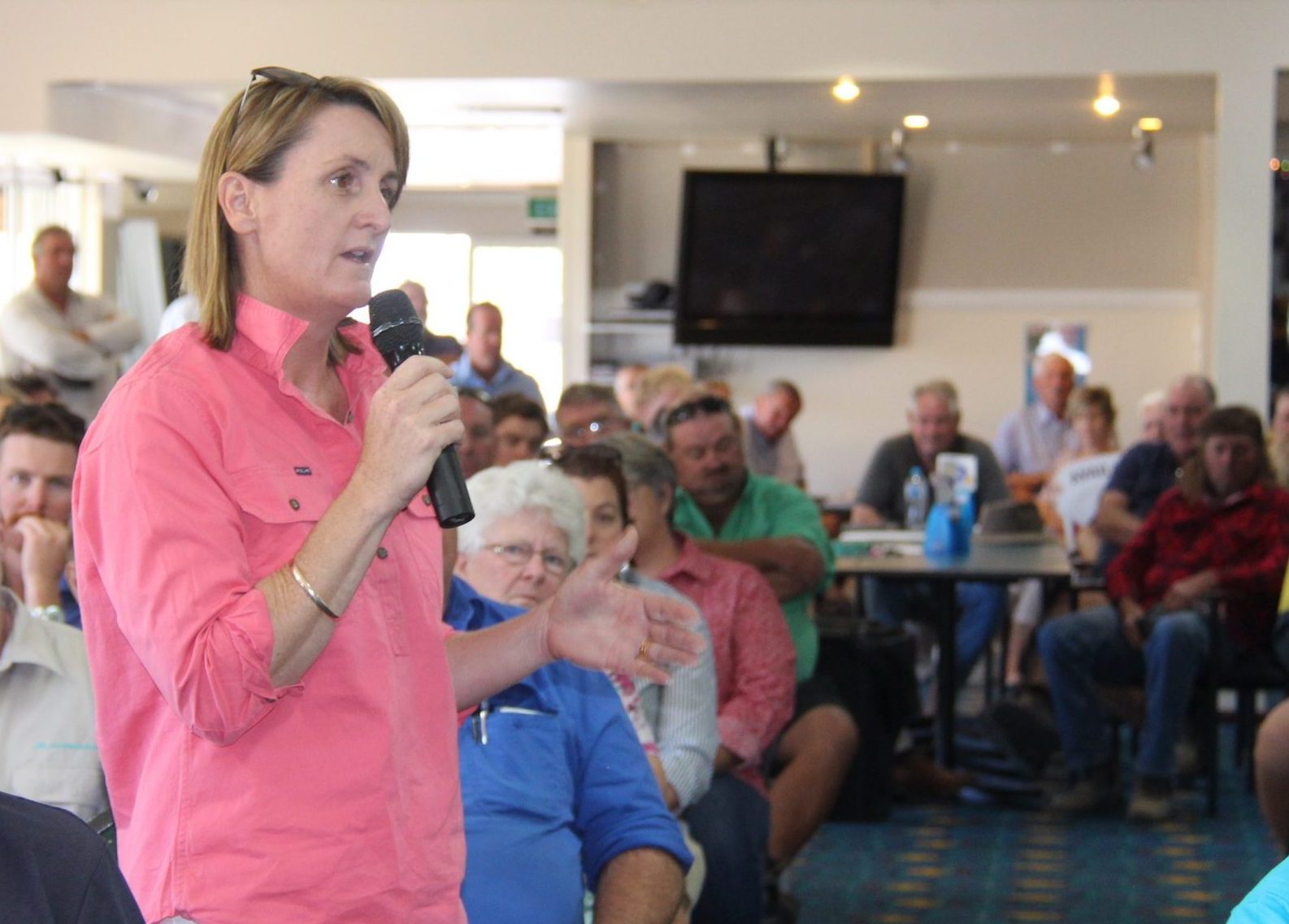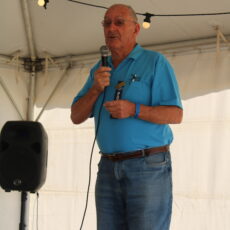How many suicides can you pile up on your conscience one, two, three, do the numbers matter?
Does it need to get to suicide before the social media bullying of the northern basin takes a pause and people consider the consequences?
At the moment the worst of society is evident in how water issues are discussed – farmer against farmer, upstream against downstream, north against south, commodity against commodity, state against state.
For many it’s only about the sound bite, how can it be twisted to sensationalise every issue to create interest measured by likes, hits, shares, retweets and comments.
On the whole, today’s media stories are often a reflection of our Facebook feed.
Left unchecked it can be the very worst of human behaviour, it is the reality TV come to everyday life issues.
How much thought do we give to the feed of stories that we skim, flick, swipe and emoji our way through the working week?
How real or factual is it, and does it matter?
If a story has both sides that’s balanced right?
Over the last two and a half years I have seen how it does matter, how it has affected my community, it has taken a terrible toll on the farmers I work with and I am terrified this will have permanent consequences.
Last night a farmer called me at 11pm, four missed calls, unusual, most farmers are too polite to call this late after hours.
But it’s been a rough few weeks, no joy in our drought breaking rain, just more mudslinging.
I answered the fourth call, shaking voice.
What am I about to hear, how can I help, please God don’t let it come to this and don’t let it be left up to me.
It’s been a bad week, month, year, two years for the northern basin irrigator.
They are at breaking point. Some will be glad, just desserts, to those greedy corporate water thieves growing cotton – they have no social licence anyway.
All tarred with the same brush, it’s as old as time.
How did it get to this being the stereotype of the northern basin?
Farmers are at a breaking point and they feel like giving up on farming.
If you grow a corn crop on irrigation, if you grow chickpeas on irrigation, if you grow fodder for dairy cows or for a sheep/cattle farmer to buy, or you grow berries or grapes you are a good irrigator?
But if you are a northern irrigator, a northern basin farmer, a cotton grower, a real person, you have been deemed by an unwritten social/media and downstream decision that you have no social licence, you should not exist.
Is it because of one story, that even today nearly three years later the allegations remain open?
The snail’s pace of the judicial systems means a continuation of innuendo and the rest of the industry continues to suffer.
It appears that once an allegation is made it becomes a semi-fact, regardless of the premise of innocence until proven guilty.
With little regard for those left in the wake of the issue, the other 99 per cent of farmers who do the right thing, you’ve just become collateral damage.
Property rights are being ripped up, because the intangible social licence has been destroyed, a farmer’’s identity tarnished.
Last night the farmer who rang me had a shaking voice, many that I speak to nowadays do.
Their mental health is fragile, surviving drought is one thing, but surviving the sustained attacks on their right to farm, grow the type of crop that suits their soil type and climate and their right to use water has them shell shocked.
My father always said the standard you walk past is the standard you accept.
He raised me better, to not walk away from issues, even if I am but a single voice, to speak even if my voice shakes.
I am speaking out, not for sympathy, but to call for a return to common decency.
To ask those posting in their community Facebook feeds to think about whether you are making a positive contribution to bring understanding to these issues or just recycling hate and knowingly making misrepresentations.
Just this week an individual compared northern water users and their lobbyists, including myself, to child abusers.
This crosses a line, it makes me shake my head in shock that this is how rural people engage with each other now.
It is a symptom of a bigger problem – there is no trusted source of information on water.
Division provides advantages to those who are using these issues for their own political, financial and personal gain.
Yet no one calls them out.
Today (Saturday, February 22) a large national paper presented a picture of the recent drought breaking flows, it purported that that northern farmers are angry about being denied access to water that would secure towns struggling to have drinking water. Divisive, emotive and sensationalist, these 470 words continue to perpetuate a story that affects how people feel about northern irrigators.
Yet nothing could be further from the truth, critical human needs comes first, as it should.
Firstly to those within the area where the rain fell to access their basic rights, and then for each system downstream as it becomes available.
This is supported by all northern basin communities.
The rain that arrived should have brought joy, however it has brought uncertainty, stress and more accusations that somehow the northern basin is taking vast volumes of water, endangering downstream communities. Again this view is based on limited information and what was the source of truth in the moment? Facebook, Twitter and a national radio program, with very few facts, instead relying on opinions of a few individuals to make big statements designed to continue the scaremongering.
The application of new rules at the last minute without any detail meant farmers did not know what they could and could not do within the new embargo on floodplain harvesting.
Like a bad movie embargo on, embargo off, embargo on, embargo off, these decisions were made based on flow targets that moved as the rain continued and flow forecasting changed from achieving outcomes at Bourke to Lower Darling, to full connectivity.
However no one bothered to bring the affected communities along with this process.
This gave all the cannon fodder needed to those with an agenda to create mistrust in how the northern basin is managed, it fuelled the fire they needed to burn the northern basin a bit more.
These attacks come at a cost, the phone call at 11pm, the farmer who is emotionally distressed and an issue too big to even know where to begin.
It has led to farmers in the Namoi being pushed to breaking point. Those lucky few with a small corn/cotton crop, grown using groundwater, ruined due to the rain. They have watched a flood pass and have been castigated online for the real time management of flood flows.
It’s no wonder their voices shake and they feel like giving up.
Northern basin irrigators are real people, they have families, they have employees and communities that they live and work in.
They do a great job farming a range of crops that suits the climate and soil types they have. Like everyone else they have zero tolerance for anyone who doesn’t follow the rules.
My hope is that people think before they post, what good is it if someone takes their life over this issue because of the unrelenting pressure of the last few years.
Many can’t see a future in farming in the northern basin as an irrigator because it’s been stripped away by inflamed and inaccurate social media, one post at a time, with complete disregard for the damage it does. The human cost.
By Jon-Maree Baker, wife, mother of four, grazier, proud Yarrie Laker, Rural Woman of the Year NSW, Centenary medal for service to rural industry.
If you need urgent help, contact: Lifeline 13 11 14 www.lifeline.org.au MensLine Australia 1300 789 978 www.mensline.org.au Beyond Blue 1300 224 636 www.beyondblue.org.au
To order photos from this page click here







